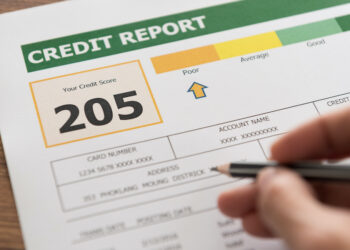Cryptocurrency has exploded in popularity across the United States, offering a decentralized alternative to traditional finance. But navigating the world of Bitcoin, Ethereum, and other digital assets starts with choosing the right crypto exchange. In this guide, we’ll highlight the top platforms—especially Kraken and Coinbase—and provide essential tips for selecting a secure, user-friendly exchange that meets your trading needs.
Disclaimer: Cryptocurrency investments are highly speculative and involve significant risk. This article is for informational purposes only and does not constitute financial advice. Always do your own research and consult a qualified professional before investing.
1. Why Use a Crypto Exchange?
Crypto exchanges are platforms that allow you to buy, sell, and trade cryptocurrencies using various payment methods (e.g., bank transfers, credit cards, or other crypto assets).
- Convenience: Easily convert fiat currency (USD) into digital assets.
- Liquidity: Access a large pool of buyers and sellers for faster trades at market prices.
- Security Measures: Many reputable exchanges provide insurance, two-factor authentication (2FA), and robust compliance with U.S. regulations.
Need beginner info? Check out the SEC’s Cryptocurrency Investor Information to learn more about crypto basics and potential risks.
2. Top Crypto Exchanges in the U.S.
1. Coinbase
- Website: Coinbase
- Founded: 2012
- Key Features:
- User-Friendly Interface: Ideal for beginners.
- Regulatory Compliance: Registered as a Money Services Business with FinCEN; publicly listed (NASDAQ: COIN).
- Coinbase Pro: Advanced trading tools for experienced traders.
- Pros:
- Beginner-friendly dashboard
- Wide range of cryptocurrencies
- High liquidity
- Cons:
- Relatively high fees on the basic platform
- Limited altcoin offerings compared to some global exchanges
2. Kraken
- Website: Kraken
- Founded: 2011
- Key Features:
- Low Fees and Advanced Tools: Known for competitive rates, margin trading, and OTC services.
- Security Focus: Robust measures including proof-of-reserves audits and 2FA.
- Wide Global Reach: Supports multiple fiat currencies and cryptos.
- Pros:
- Strong security track record
- Advanced trading features (futures, margin)
- Relatively lower fees for high-volume traders
- Cons:
- Interface less intuitive for newcomers
- Restricted services for certain U.S. states
3. Binance.US
- Website: Binance.US
- Founded: 2019 (U.S. version of global Binance)
- Key Features:
- Competitive Fees: Often lower than many U.S. competitors.
- Wide Coin Selection: Offers popular and emerging digital assets.
- Staking and Rewards: Earn interest by holding certain tokens.
- Pros:
- Low trading fees
- User-friendly mobile app
- Advanced charting tools
- Cons:
- Not available in all U.S. states (e.g., New York)
- Fewer features than the global Binance platform
4. Gemini
- Website: Gemini
- Founded: 2014 by the Winklevoss twins
- Key Features:
- Regulatory Compliance: Registered New York trust company.
- Gemini Earn: Earn interest on your crypto holdings.
- Insured Hot Wallet: Offers digital asset insurance for select funds.
- Pros:
- Strong focus on security and compliance
- Straightforward interface for new users
- Supports advanced trading via ActiveTrader platform
- Cons:
- Higher fees compared to some competitors
- Limited altcoin selection
5. Crypto.com
- Website: Crypto.com
- Founded: 2016
- Key Features:
- Crypto Visa Card: Earn rewards in crypto when you spend.
- Staking and Earning Tools: Lock up CRO tokens for better rewards.
- Mobile-Centric: Robust mobile app for on-the-go trading.
- Pros:
- Wide range of supported coins
- Competitive rewards programs
- User-friendly interface
- Cons:
- Tiered fees for credit card purchases
- Platform features can be complex for beginners
Tip: Always verify your exchange of choice supports your state or region. U.S. regulations differ, and some exchanges may not operate in certain locations.
3. How to Choose the Right Exchange
Security & Regulation
- Look for two-factor authentication (2FA) and reputable regulatory oversight.
- Check for cold storage of user funds and insurance policies.
Supported Cryptocurrencies
- Ensure the platform offers the coins or tokens you intend to trade.
- More niche or newer projects may only be listed on specialized exchanges.
Fees
- Compare trading fees, deposit/withdrawal fees, and potential hidden costs.
- Some platforms (like Kraken) have maker-taker fee structures that reward high-volume traders.
User Experience
- Beginners may prioritize a simple interface; advanced traders may need sophisticated charting tools.
- Look for demo modes or practice accounts to familiarize yourself with the platform.
Customer Support
- Quick, reliable support channels (email, chat, phone) can be crucial if issues arise.
- Search for user reviews on sites like Trustpilot or Reddit to gauge service quality.
4. Quick Alternatives to Centralized Exchanges
Decentralized Exchanges (DEXs)
- Examples: Uniswap, SushiSwap
- Pros: No intermediaries; users maintain custody of their assets at all times.
- Cons: More complex UI, potential for higher transaction fees on certain networks (like Ethereum gas fees).
Peer-to-Peer (P2P) Platforms
- Examples: LocalBitcoins, Paxful
- Pros: Trade directly with other users; flexible payment methods.
- Cons: Increased risk of fraud, requires additional diligence on user reputation.
Pros and Cons of the Top Exchanges
| Exchange | Pros | Cons |
|---|---|---|
| Coinbase | User-friendly, high liquidity, strong U.S. regulatory stance | Higher fees, limited altcoin selection |
| Kraken | Advanced trading tools, competitive fees, robust security | Less beginner-friendly interface, not available in all states |
| Binance.US | Low trading fees, wide variety of coins, staking options | Limited availability by state, fewer features vs. global Binance |
| Gemini | Top-tier security, regulated in NY, intuitive design | Higher fees, smaller range of coins |
| Crypto.com | Crypto Visa card, diverse coin listings, user-friendly app | Tiered fees, can be complex for new users |
Tips for Safely Trading Crypto
No matter which exchange you choose, follow these best practices to protect your assets:
- Enable 2FA
Use an authenticator app (e.g., Google Authenticator) rather than SMS to reduce SIM-swap risks. - Use a Strong Password
Consider a password manager like 1Password or LastPass. - Withdraw to a Personal Wallet
For long-term holding (HODLing), consider transferring funds to a hardware wallet like Ledger or Trezor. - Stay Informed
Keep an eye on official SEC alerts and reputable crypto news sites for scam or hacking warnings.
Conclusion: Finding the Right Crypto Exchange for You
From Coinbase’s user-friendly interface to Kraken’s advanced trading features, the best crypto exchange for you depends on your experience level, desired cryptocurrencies, and specific trading goals. By comparing fees, security measures, and user experience across platforms, you’ll be better equipped to choose an exchange that aligns with your needs in the ever-evolving U.S. crypto landscape.
Start here:
- Visit Coinbase for Beginner-Friendly Trading
- Explore Kraken’s Advanced Features
- Check Real-Time Exchange Reviews on CoinMarketCap
With the right research and safety precautions, you can dive into the world of crypto with confidence—knowing your exchange supports both your financial goals and your peace of mind.





